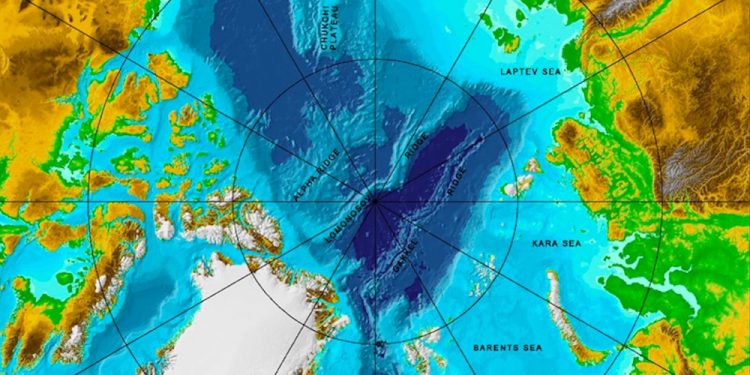Concerned nations met last month in Ottawa to begin preparatory work on the outstanding issues to pave the way for a smooth entry into force of the Agreement to Prevent Unregulated High Seas Fisheries in the Central Arctic Ocean.
Delegations from the European Union, Canada, the People’s Republic of China, Denmark (in respect of Greenland and the Faroe Islands), Iceland, Japan, the Republic of Korea, Norway, the Russian Federation and the United States met in Ottawa on 29-30th May, agreeing to formalise a provisional scientific group to coordinate the work of scientific experts under the Agreement to further develop the Joint Program of Scientific Research and Monitoring envisaged under the Agreement.
The group of scientists will meet for the first time in February 2020 at the European Commission’s Joint Research Centre in Ispra, Italy.
In Ottawa, the EU also announced two scientific expeditions into the high seas of the Central Arctic Ocean, one starting in September 2019 (MOSAiC) and one in the autumn of 2020 (Oden expedition) to determine the state of fish stocks in the area.
The findings of these actions will contribute to the future Joint Programme.
Delegations also discussed the integration of indigenous and local knowledge and the importance of participation of representatives of Arctic communities, including Arctic indigenous peoples, through the process of discussions and implementation of the Joint Program of Scientific Research and Monitoring envisaged under the Agreement. Canada will host a workshop on this topic in the late Fall of 2019. The results of which are to feed into the scientific meeting hosted by the EU next year.
Many regional bodies have already developed conservation and management measures governing exploratory fisheries. A compilation and assessment of these existing measures are to provide a first step for the further development of conservation and management measures for governing exploratory fishing in the Central Arctic Ocean.
A preparatory conference is to be convened by mid-2020 to take stock of these developments and decide on further steps.
As the Arctic region is warming at almost three times the global average rate, causing a change in the size and distribution of fish stocks, the Arctic high seas are seen as becoming attractive for commercial fisheries in the medium to long term.
Up to now, most of the Arctic high seas have not been covered by any international conservation and management regime. There is still a limited understanding of the marine ecosystems of the Arctic and, in particular, of determining whether fish stocks might exist in this area that could be harvested on a sustainable basis.
The agreement reached last year, is first step towards the creation of one or more regional fisheries management organisations or arrangements for the Central Arctic Ocean, to ensure that any future fishing is carried out sustainably.
The agreement is fully in line with the long-held position of the European Union, namely that no commercial fisheries should begin in the Arctic high seas before a science-based and precautionary management regime is in place.
The Agreement is a key deliverable under the EU’s Ocean Governance policy and under the EU’s Arctic policy, wherein sound stewardship of the high seas, a responsible approach towards utilising Arctic marine resources and respect of the rights of indigenous peoples feature prominently.









